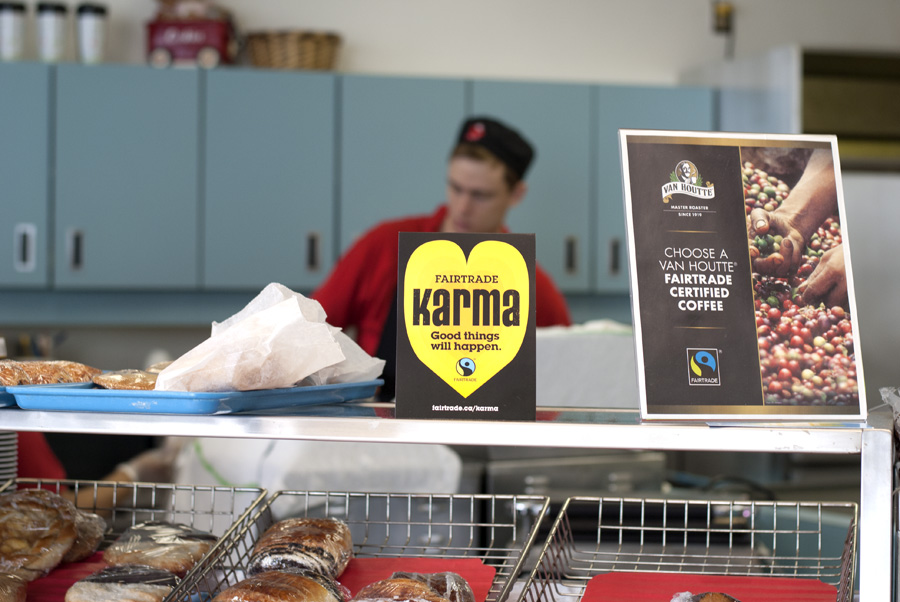Last week, McGill celebrated Fair Trade Week with various events dedicated to the promotion of fair trade products, including free coffee and chocolate fountains. The weeklong event followed the announcement over the summer that the university became the first school in Quebec and the fifth in Canada to become fair trade certified. The week was a collaboration between McGill Food and Dining Services (MFDS) and Engineers Without Borders (EWB).
The motion to bring fair trade certification to McGill began two years ago, when EWB approached MFDS with the suggestion of becoming certified. MFDS conducted the major administrative work in order to achieve certification for the university.
Fair trade certification means that McGill supports aspects of food production such as fair wages for farmers and producers. Every cafeteria and food service on campus has fair trade certified foods. Oliver De Volpi, Executive Chef for MFDS, described the journey towards certification as a long but successful process.
“In the last few years, we’ve led this push,” De Volpi said. “At first […] no one wanted to take an initiative in this process, because no one knew who to really speak to in terms of food service. It took a while for it to be organized and for [the Students’ Society of McGill University (SSMU)] to jump on board in recent months.”
Some students suggested that a continued effort to raise awareness about fair trade issues is necessary. A student who asked to remain anonymous said there were not enough advertisements of this event on campus.
“I think a lot more publicity could’ve been going on,” she said. “I didn’t know McGill [was] fair trade certified until last week, which is a bit late, I think, for such a thing.
However, Jessica Hoch, members of EWB, said there were daily efforts on campus to raise awareness of Fair Trade Week and EWB.
“EWB has spoken with stu dent-run food stores on campus [such as] SNAX, Dave’s, and the EUS General Store, and encouraged them to purchase fair trade products; this idea was met with support by all student-run stores,” Hoch said. “We also have a fair trade booth on Mondays and Fridays in the FDA building that runs from 8:30 to 3:30 p.m., selling fair trade products by donation, as well as awareness events throughout the year.”
McGill’s efforts focus on ensuring produce and products, such as coffee and chocolate, are attained through fair trade procedures, according to De Volpi.
“Vegetables and fruit for us are already fair trade—we’re not buying from overseas countries, we’re buying as local as possible,” De Volpi said. “The main problem is chocolate [….] We’re buying fair trade cocoa powder already, and our next step might be to get [fair trade] chocolate milk.”
As part of this initiative, McGill partners with Fair Trade Canada, a company that works with farmers to ensure they have fair wages and attempts to gain support from schools and businesses. Fair Trade Canada Executive Director Sean McHugh said that the combined efforts of MSDS and EWB successfully brought certification to McGill, and that he looks forward to working with the university in the future.
“We’ve been working together for the past few years to make McGill fair trade certified,” McHugh said. “I work with volunteering groups across Canada, including EWB, and they are such a pleasure to work with [.…] We’re looking to expand to other schools, starting with coffee and chocolate, then eventually sugar, clothing, soaps, hand creams, spices, [and] vegetables.”









